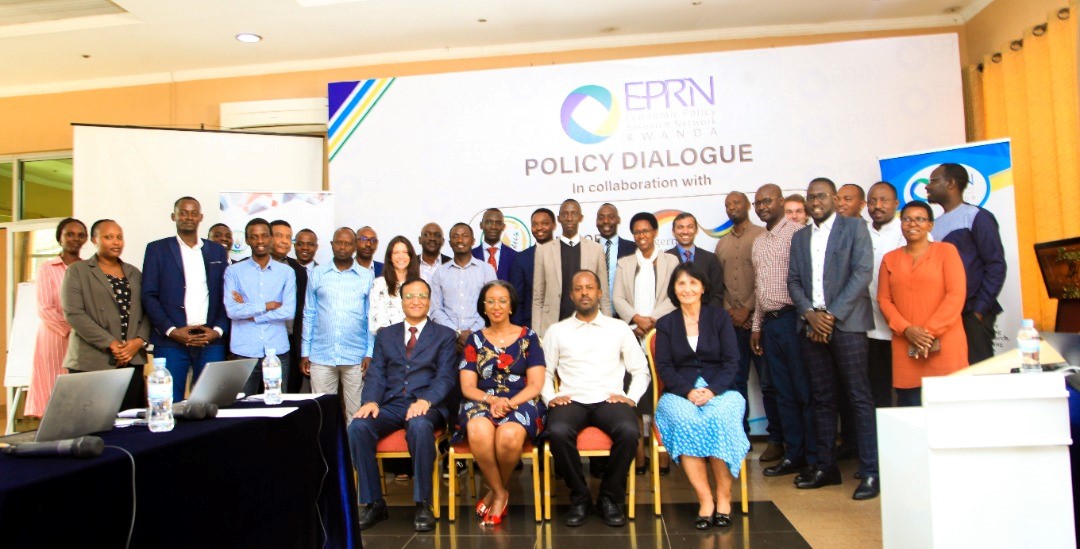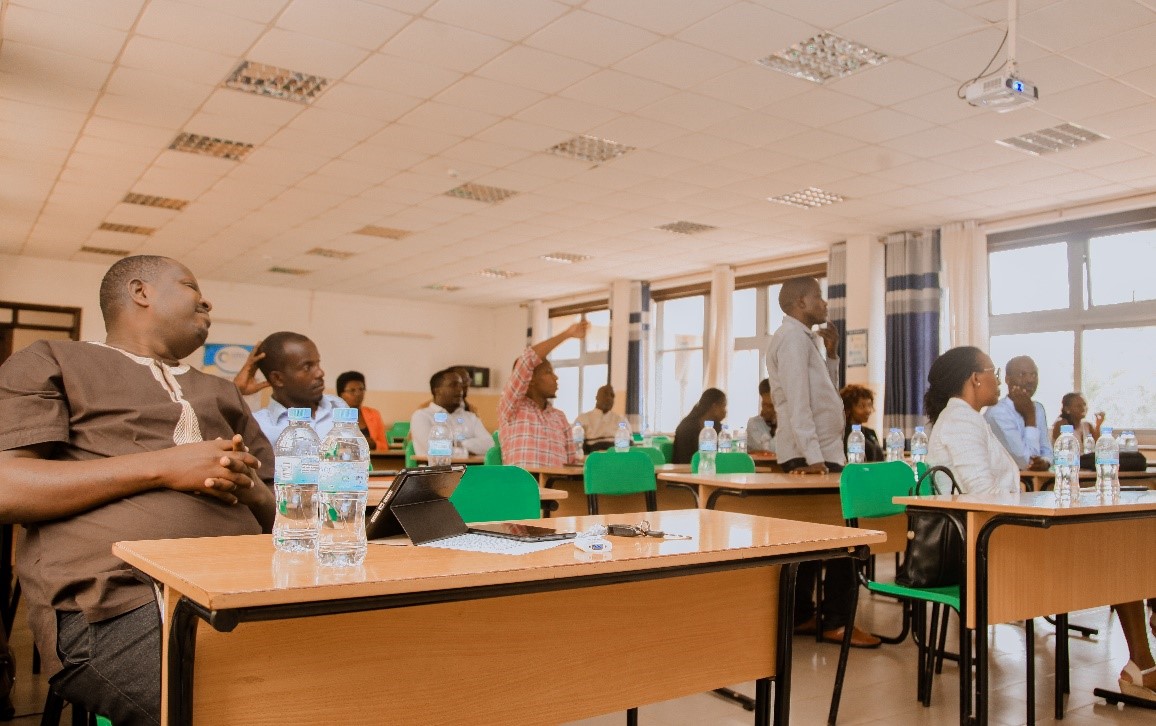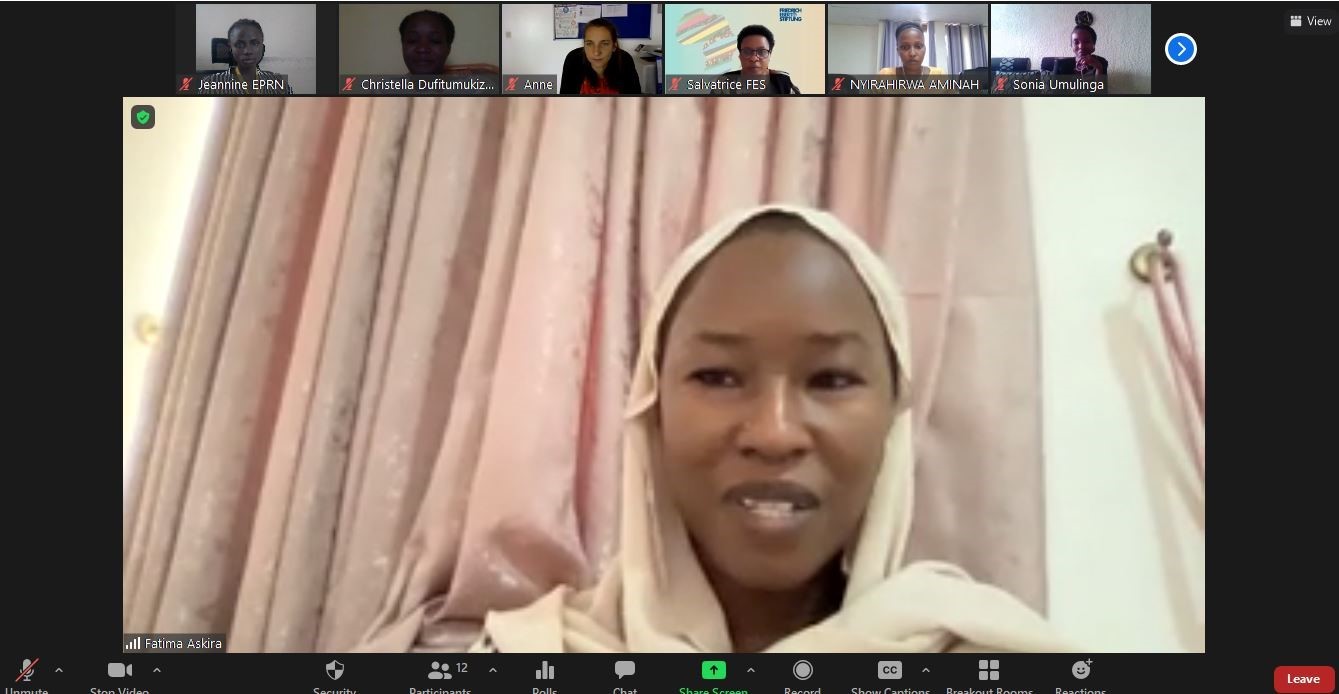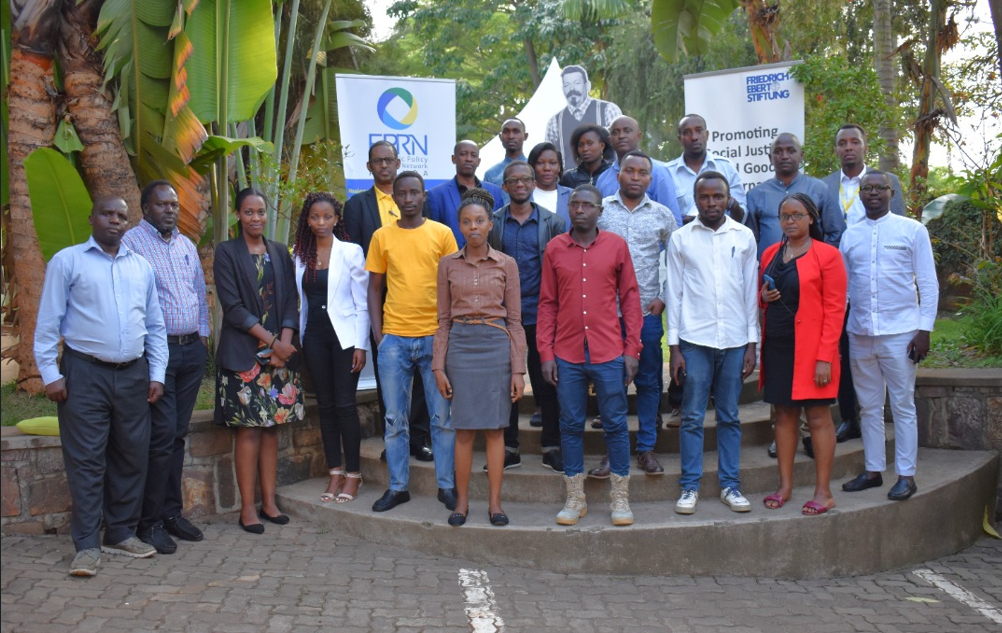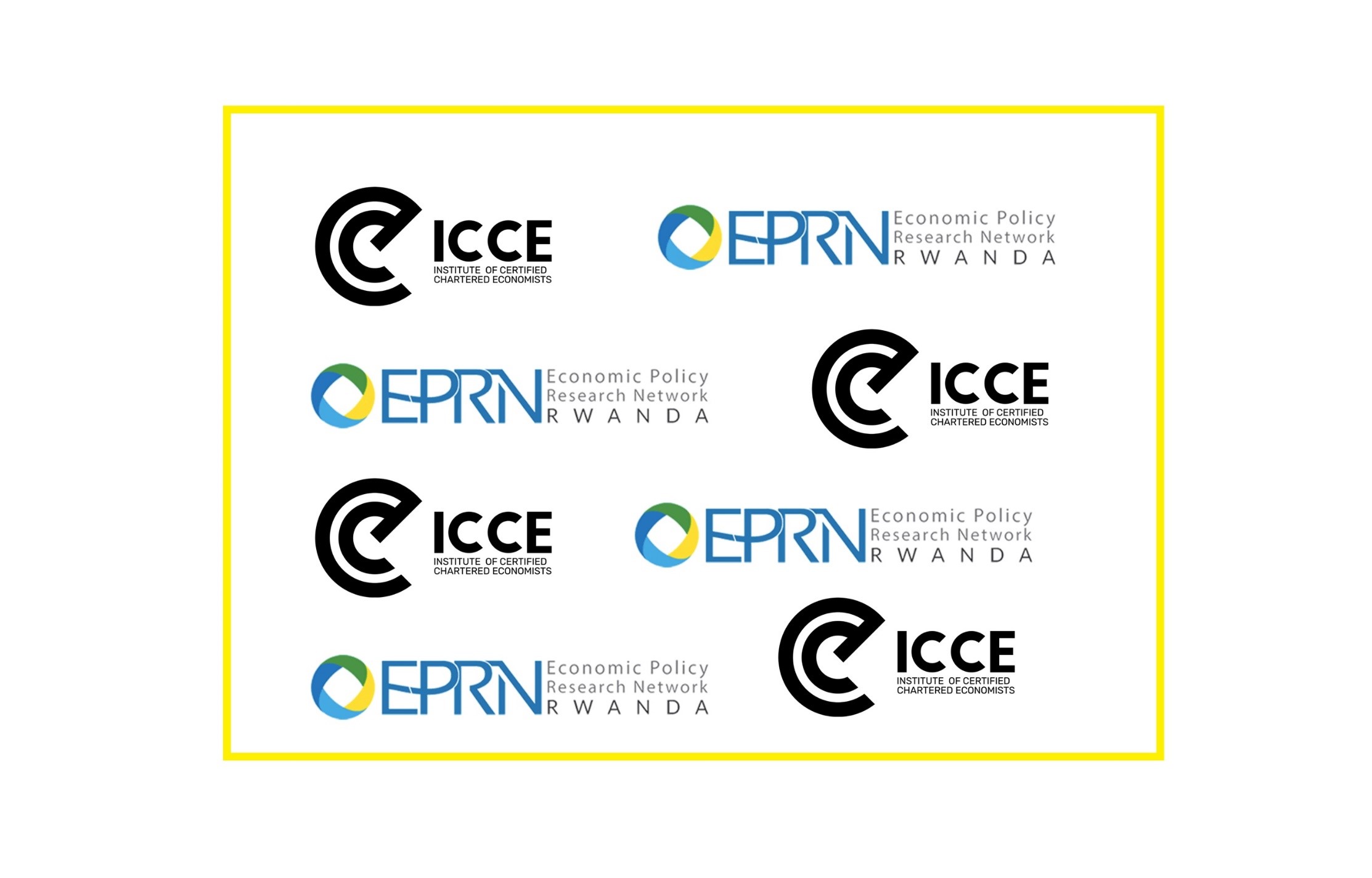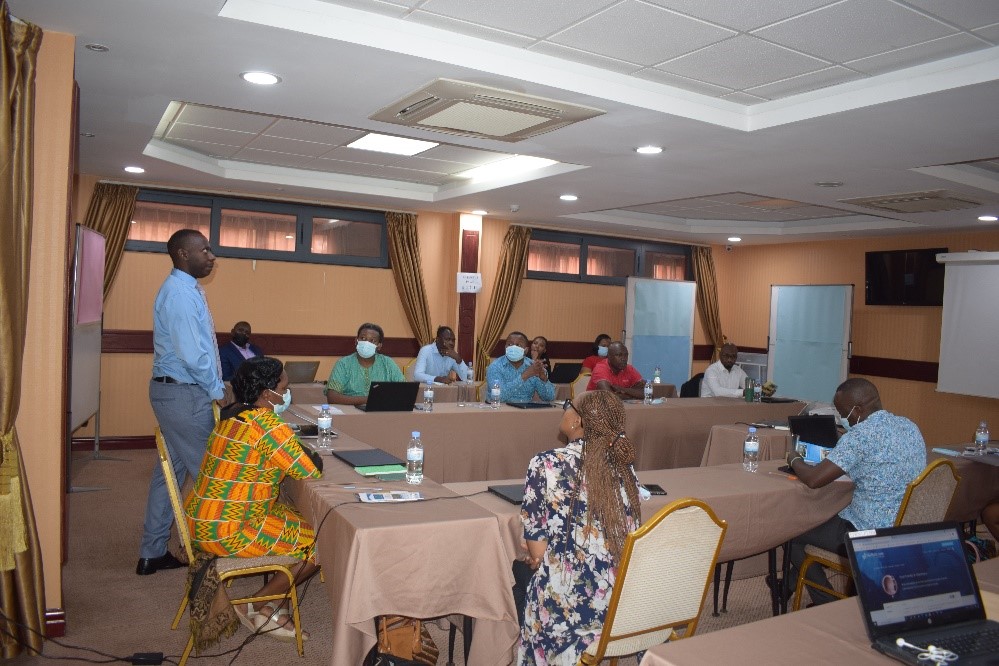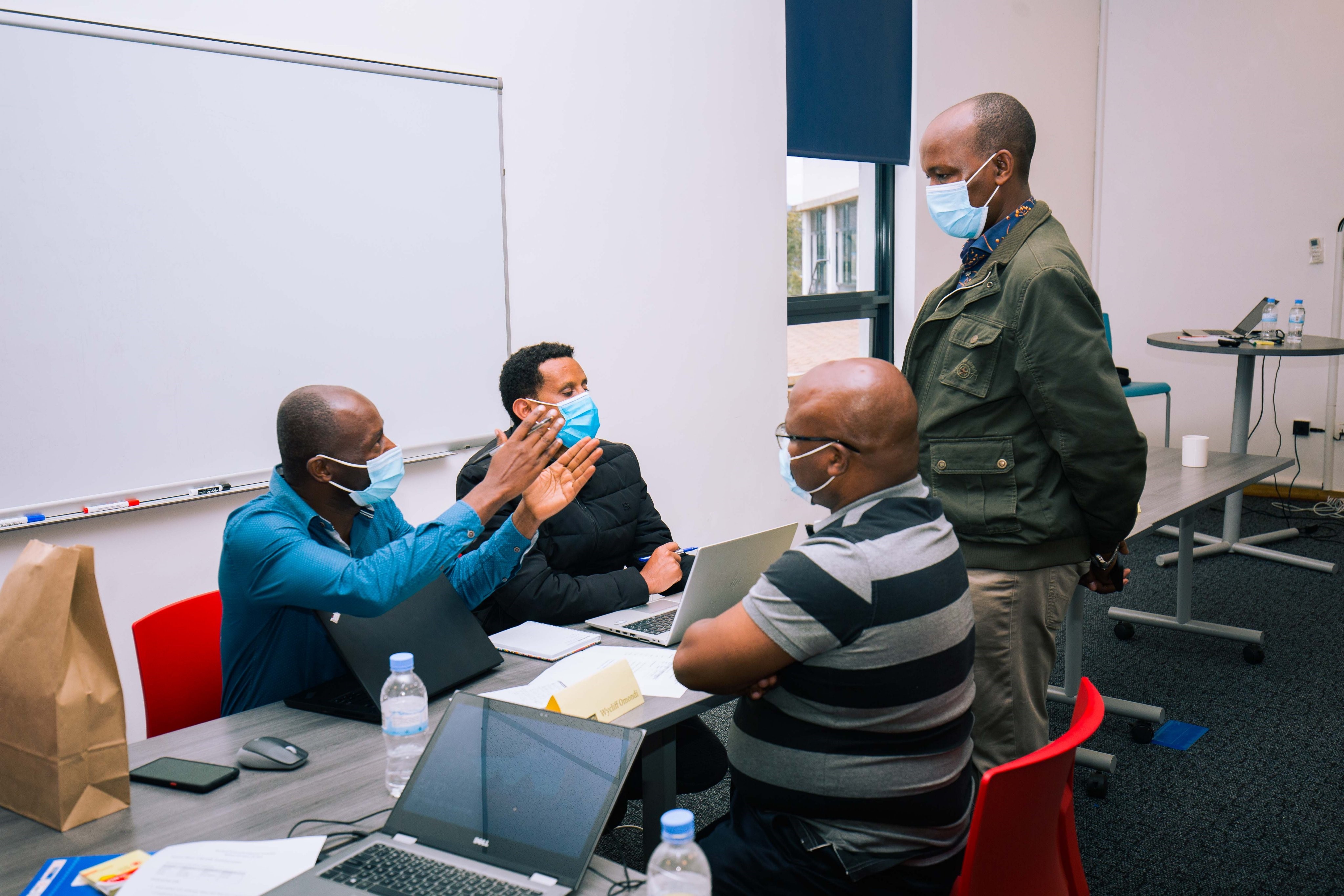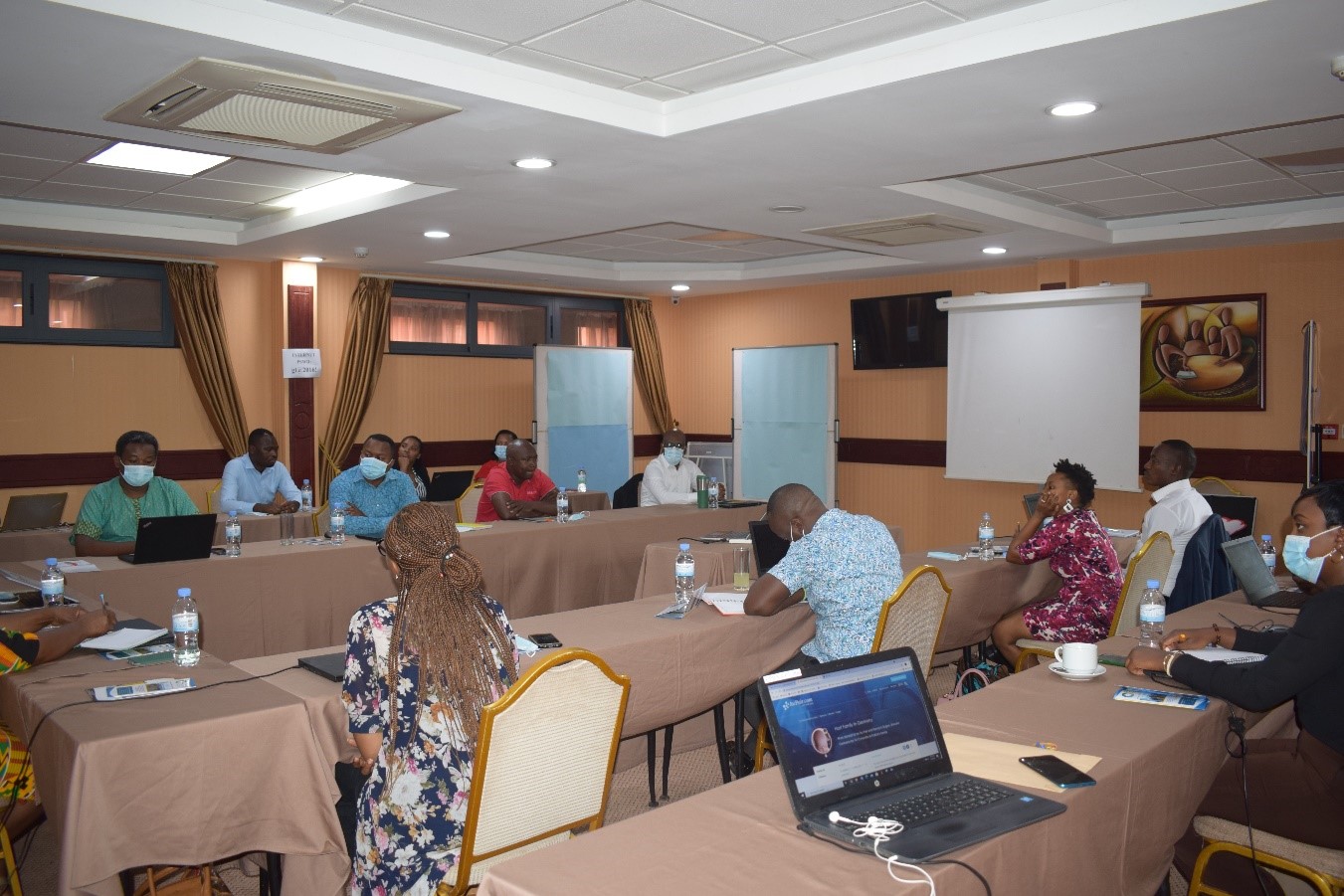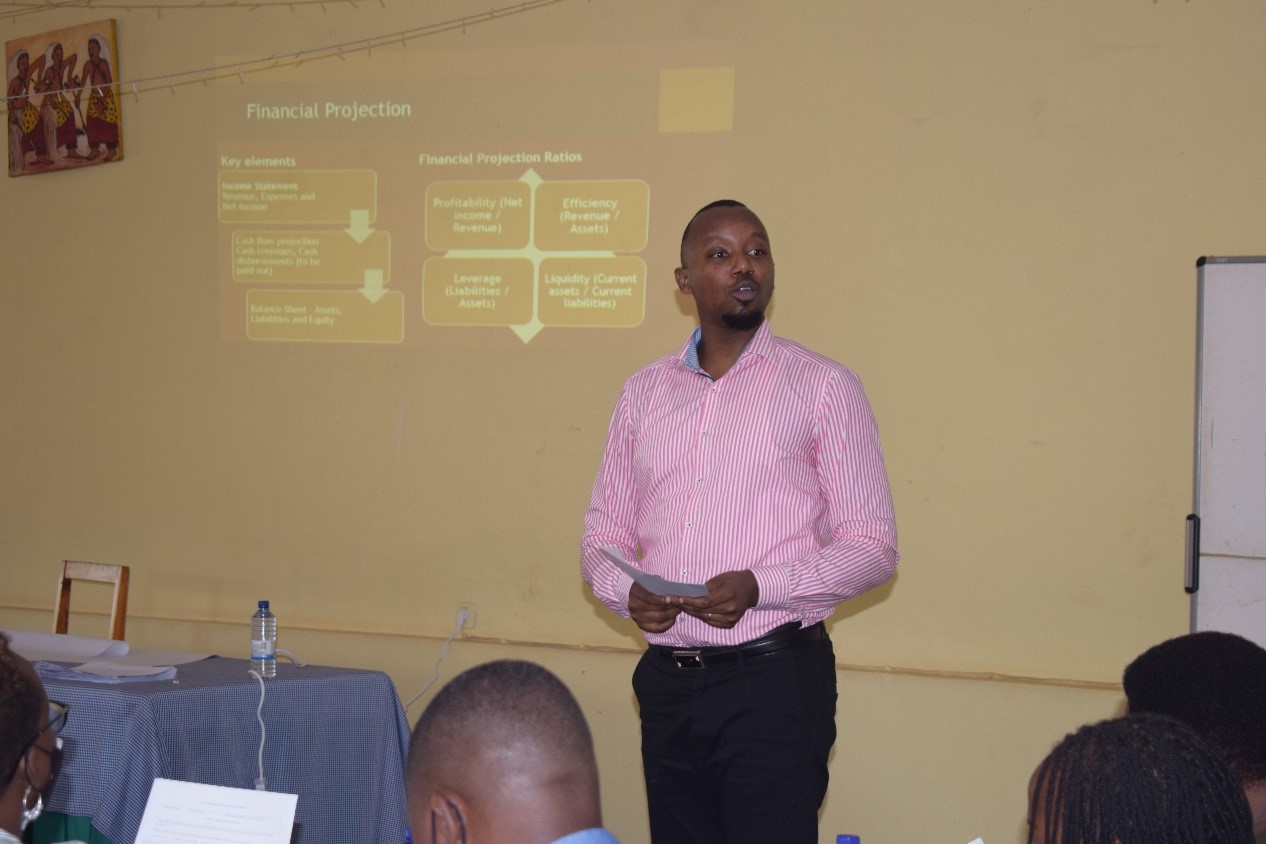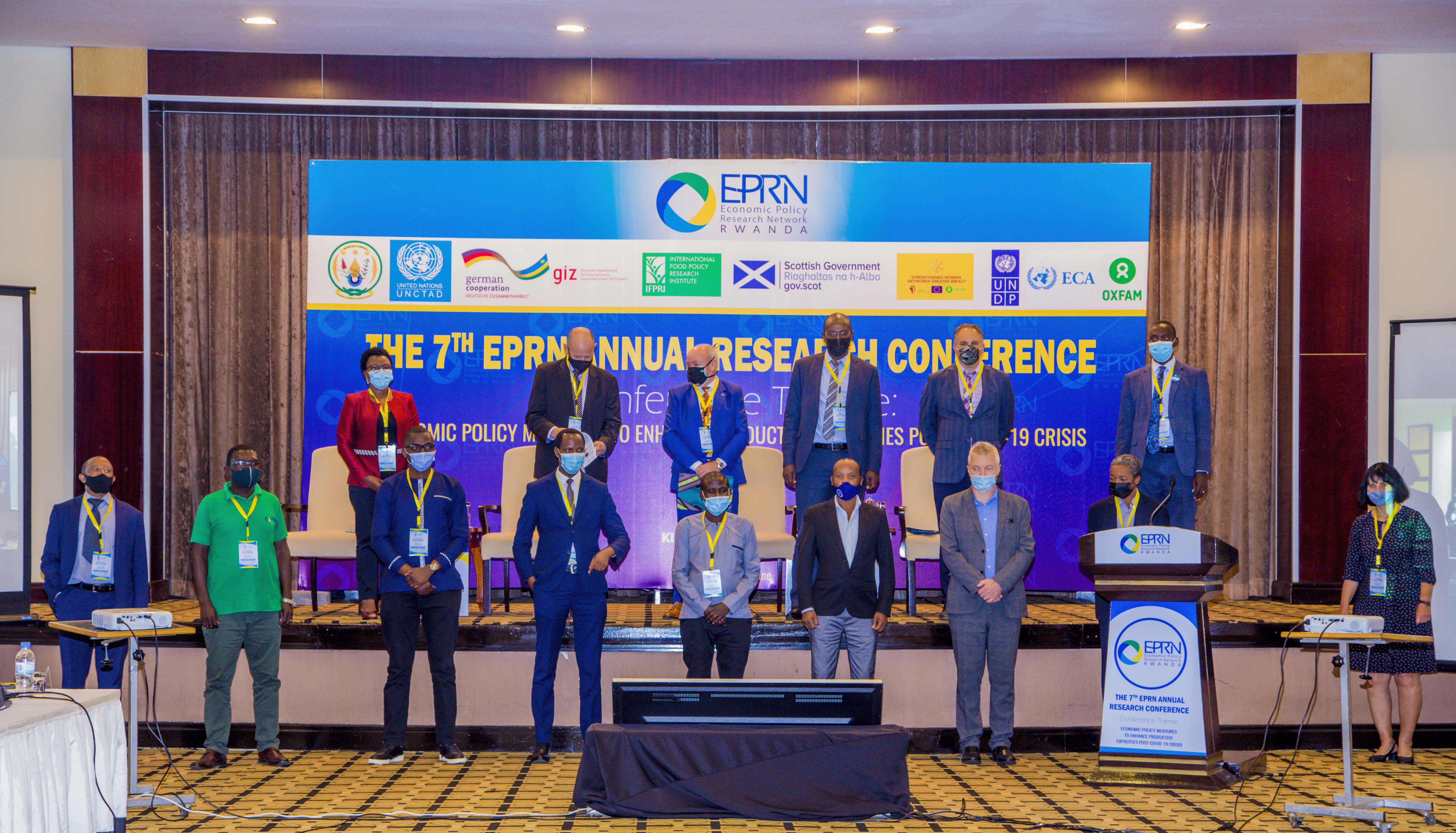Policy Dialogue on Rwanda’s Readiness to tap into African Continental Free Trade Area – the way forward
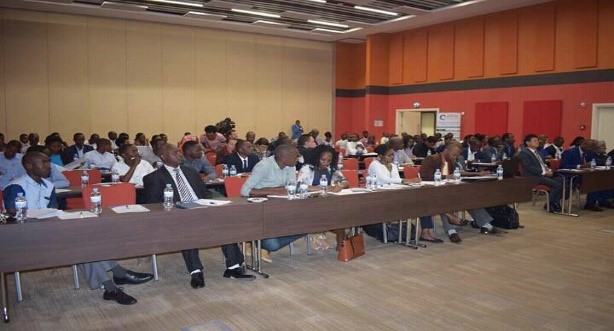
27th July 2018 @Kigali Convention Center
Organized jointly by EPRN Rwanda, UNECA and MINICOM
1. Background
The African Continental Free Trade Agreement (AfCFTA) is an agreement between 44 African Union member states. The AfCFTA was signed in Kigali, Rwanda on 21 March 2018. The AfCFTA is a tool for driving African industrialization, economic diversification and development. It will help to promote the type of trade that produces sustainable growth, creates jobs for young people in Africa and establishes opportunities for nurturing businesses and entrepreneurs on the continent.
Signing the Agreement does not yet establish the African Continental Free Trade Area. It will function as an umbrella to which protocols and annexes will be added. Once all documents are concluded and ratified by 22 states, the free trade area will formally exist.
To fully utilize the opportunities of the AfCFTA, each country should develop a strategy that complements the broader trade policy of each respective State and that identifies for that particular country the key trade opportunities, current constraints and steps required for it to take full advantage of the African market. Such strategies would be in line with the Action Plan for Boosting Intra-African Trade of the African Union.
The policy dialogue focused on the current positioning of Rwanda vis a vis other countries in terms of trade. In addition, the policy brought together people from different background and expertise including policy makers, private sector players, academics, civil society activists and development partners to brainstorm and assess key challenges, opportunities to bring about possible recommendations to ultimately inform policy making.
2. Opening Session
2.1 Opening address by Dr Ruhara Mulindabigwi Charles ; Legal Representative of EPRN
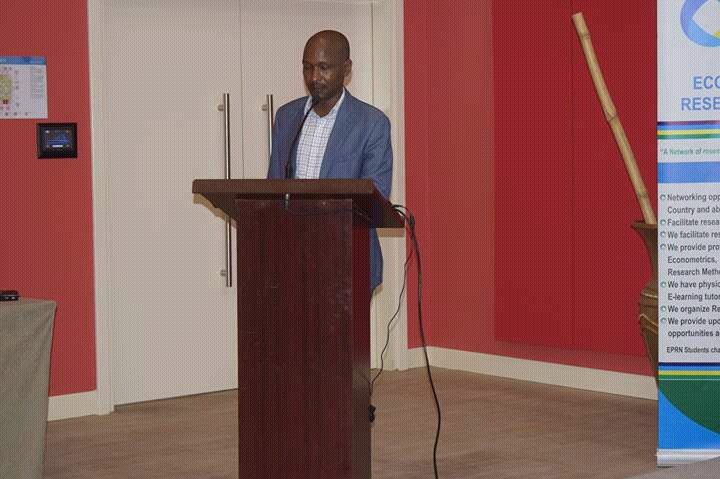
In his opening remarks, Dr Charles mentioned that the purpose of this dialogue on African continental free trade area is to brainstorm on ACFTA agreements so as to understand them more clearly. In this session we need to discuss on Rwanda positioning, on how to get ready, where we stand on our comparative strategies, and on how to take the ACFTA opportunities. For the legal instruments of the agreements was signed in Kigali on 21st March 2018 and the agreements was launched at the same day.
Dr Charles said some of the question expected to be answered in this workshop are :
- What is the role of private sector ?
- What is the role of made in Rwanda policy ?
- What are the appropriate macroeconomic policies ?
- How should we organize our planning and strategies ?
- How Rwanda should be prepared so that we can get more benefits ?
2.2 Opening Remarks by Dr Andrew Mold ; Officer in Charge…
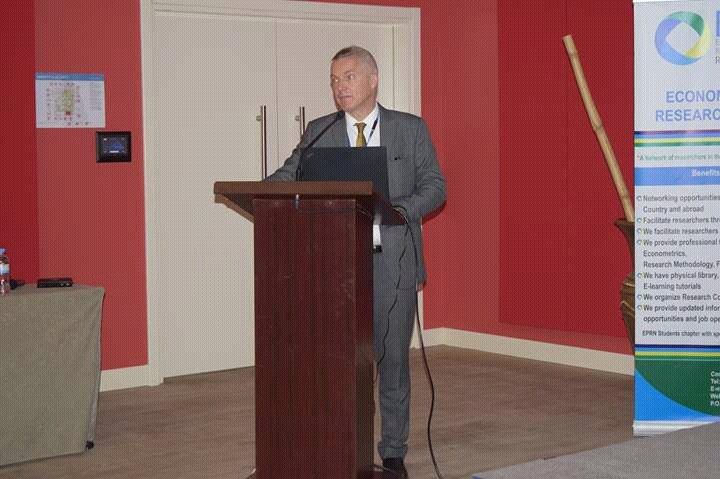
Dr Andrew called for a good discussion having the sessions brought together a diversity of government officials, and very importantly the universities and who are expected to come up with researches and policy recommendations for how to implement these ACFTA agreements.
2.3 Opening address by Mr. Michel Minega SEBERA, Permanent Secretary of Ministry of Trade and Industry

Mr Sebera said, the purpose of this policy debate is to deliberate on steps taken by African countries and Rwanda of introducing ACFTA framework. let me take this opportunity to welcome you all and to thank a good partnership between EPRN, UNECA and MINICOM
According to the initial instruments by UNECA, the ACFTA is to establish the largest single civil market and smooth trade between African states by 50% between 2012 and 2020. By combining good governance and political stability and African integration, the African market will increase economic growth, job creation, and poverty reduction ; this will offer direct investment, infrastructure, industrial development and better integration of the continent.
He pointed out that he is confident that this workshop will contribute more and raise the awareness of this policy which is going forward and make sure that with ACFTA, Rwanda will fully use its advantages. The stakeholders here, present private sector, public institutions, academicians, development partners, researchers and civil societies ; diversity is a testimonial of the important of ACFTA and we call up on all stakeholders, especially academicians and researchers to introduce its opportunities to the private sectors.
3. Summary On Presentations and Discussions
3.1 Made in Rwanda policy
a. Challenges
There is a big challenge of raw materials which is still at low level where we still import a considerable number of the raw materials for our local production.
b. Opportunities
The key benefit is that, the free trade area will be more marketable where people can access more than 2 billion consumers.
c. Recommendation
- The population and producers should be sensitized to process the raw material we have to the final product than importing more of the raw material for production
- The standard of the products which are being produced here in Rwanda, are still at low quality and with high prices compared to the international market and this should be reversed.
- With regard to the mindset of our population, we recommend that there should be the sensitization about the use of local products. The population must be proven that our products have the same standards as the international products.
- We need to ensure the sustainability of our own production not only producing today’s products and tomorrow products despair.
- We have to promote shared credit of production as products promotion strategy.
- The government should also continue to support youth and increase the skills of the younger producers
- The private sector should cooperate with public institutions to promote early and developed research to promote local production
3. 2. Rwanda’s industrialization process
a. Challenges
- Some of the challenges of Rwandan firms, one is raw materials because of limited resources and these resources can be classified into five factors : human, technology, capital and material.
- Limited capacity in terms of qualitative labour. Ex. Graduates who graduated from the universities but with no practical skills.
- Adequate registration is still lacking, the laws in place regulating industrialization in Rwanda sometimes are not facilitating in improvement of the industries.
- Limited access to financial market. There are still difficulties to access finance for our entrepreneurs which is a big challenge to them to start new businesses.
- There also a challenge of mind-set that can be classifies into two categories :
- Financial sector bankers who do not trust in the production potentials of local producers
- Population in general. The general population do not trust in the quality of locally produced items compared to imported ones
6. Challenge is youth who do not have enough entrepreneurship skills to penetrate the market
b. Opportunities
- There is a political will (policies) in our country ; for example of some RDB’s services that are being offered to the foreign investors in order to help our local industries
- There is security ; the security is a great opportunity for the startups and developing industries which also encourages and attract foreign investors
- There is enabling environment. Ex. Zero tolerance to the corruption which increases trust of investors
- Geographical location ; Rwanda is located at the heart of the continent which allows us to access many markets across Africa
- Reduction of foreign aid ; through government policies of decreasing foreign aid, this will empower local industries
- Reduction of trade deficits. When balancing our export and import trading there is a decrease of deficits.
c. Recommendations
- There should be strong linkage between manufacturing and financial institutions
- Private-public partnership policies should be strengthened ; these two sectors should work together in order for the industrialization to develop
- There should be strengthened linkage between banks, agriculture sector and manufacturing industries, there is a need to first empower agricultural products through value addition
- Strengthening research capabilities in higher learning institutions ; researches that are being done in these institutions should have a budget
- Education strategies should relate to industrialization process
- Provision of incentives to the manufacturers
3. 3 Rwanda as a service hub in the region
a. Challenges
- Education ; the service hub should be started at school level because the knowledge based economy could not happen without the quality of education. This is a challenge because our education system provide limited quality of knowledge. Education is a challenge as there is still a problem of graduate with more theories than practices
- Domestic mentality where Rwandans are not in favor of services that delivered by their fellow Rwandans compared to foreigners
- There is lack of services the ownership,
- Mentorship and network with other partners is still limited
- Mindset of the service providers is also a challenge
b. Opportunities
- Being at the heart of Africa is biggest opportunity and bilingualism of populations who are also younger these will help Rwanda to become a service hub country.
- Safety and security
- Rwanda is putting in place some of the reforms that are making investor being more comfortable which is a great opportunity
- Regulatory framework is an opportunity
- About marketing of our service products, that should be a joint program that bring together investors from other countries
- Easy movement of people as well as Rwanda air is an opportunity to make Rwanda a service hub as it is operating in 22 countries across the globe
c. Policy recommendations
- Sustainability of the businesses ; the government should ensure the sustainability of the business that have been started in Rwanda.
- Dual education, we need learning institutions to teach theories along with practices
- Innovation, we need to promote innovation in service sector and prioritization where we need to allocate our resources where we have more potentials than other
- Bilateral partnerships between Rwanda and other countries that can promote those potentials





